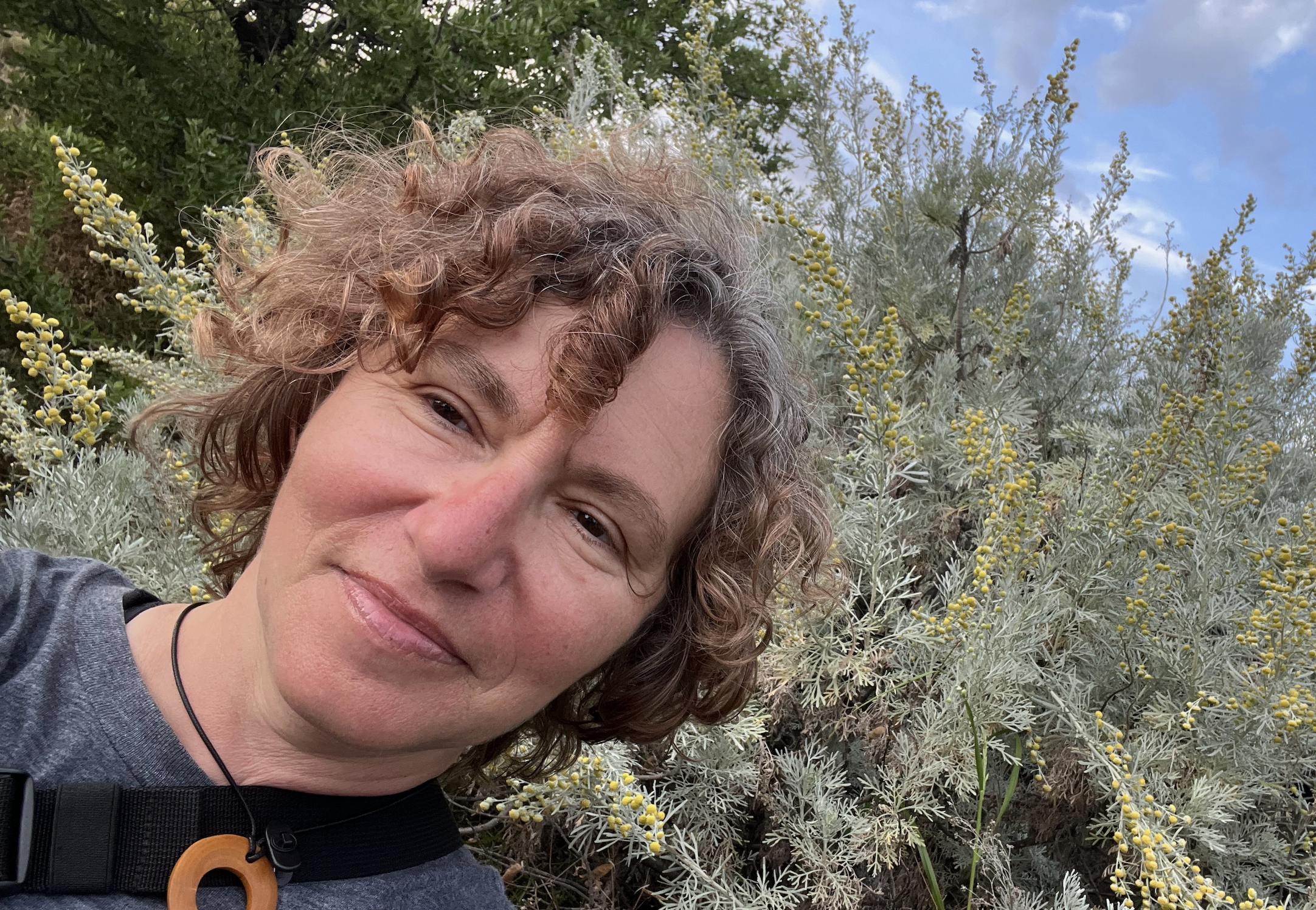ebr development timeline
1995
ebr is founded by Joseph Tabbi and Mark Amerika—an experimental journal born-digital and open-access.
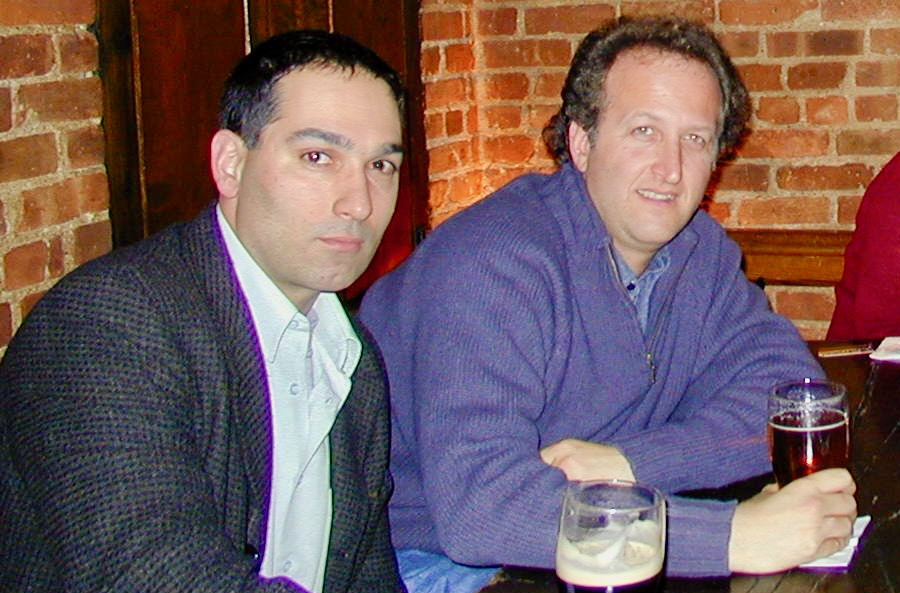
1996
Rob Wittig becomes the first ebr Barker, helping to shape the journal’s expressive and improvisational voice on the early listserv and across the evolving platform.
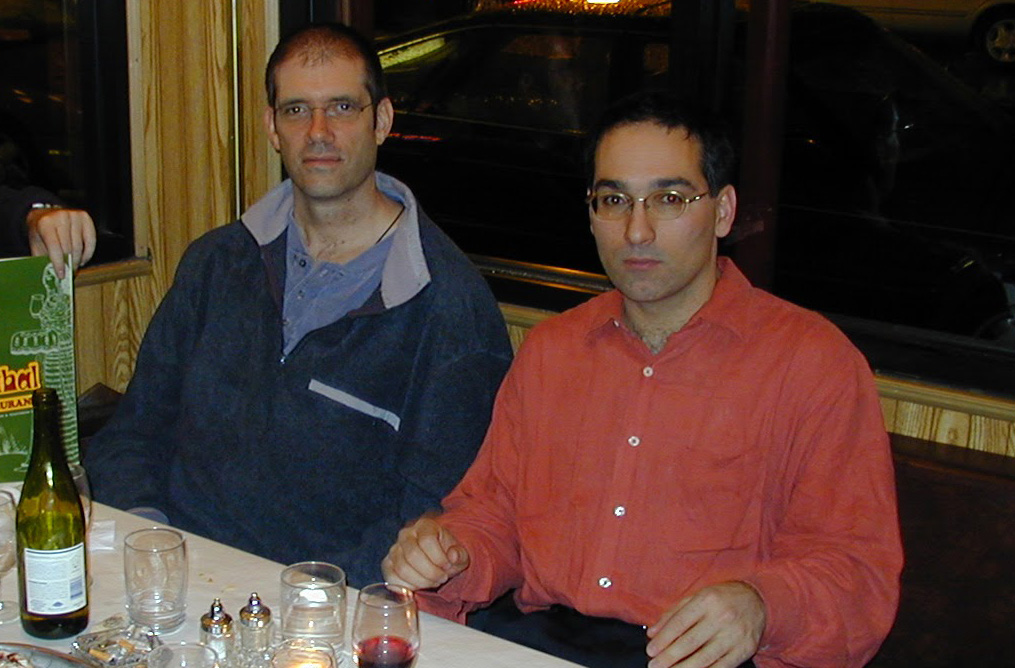
1997
Anne Burdick redesigns ebr with interactive features like “glosses” and “weaves,” anticipating web-based scholarly conversations.

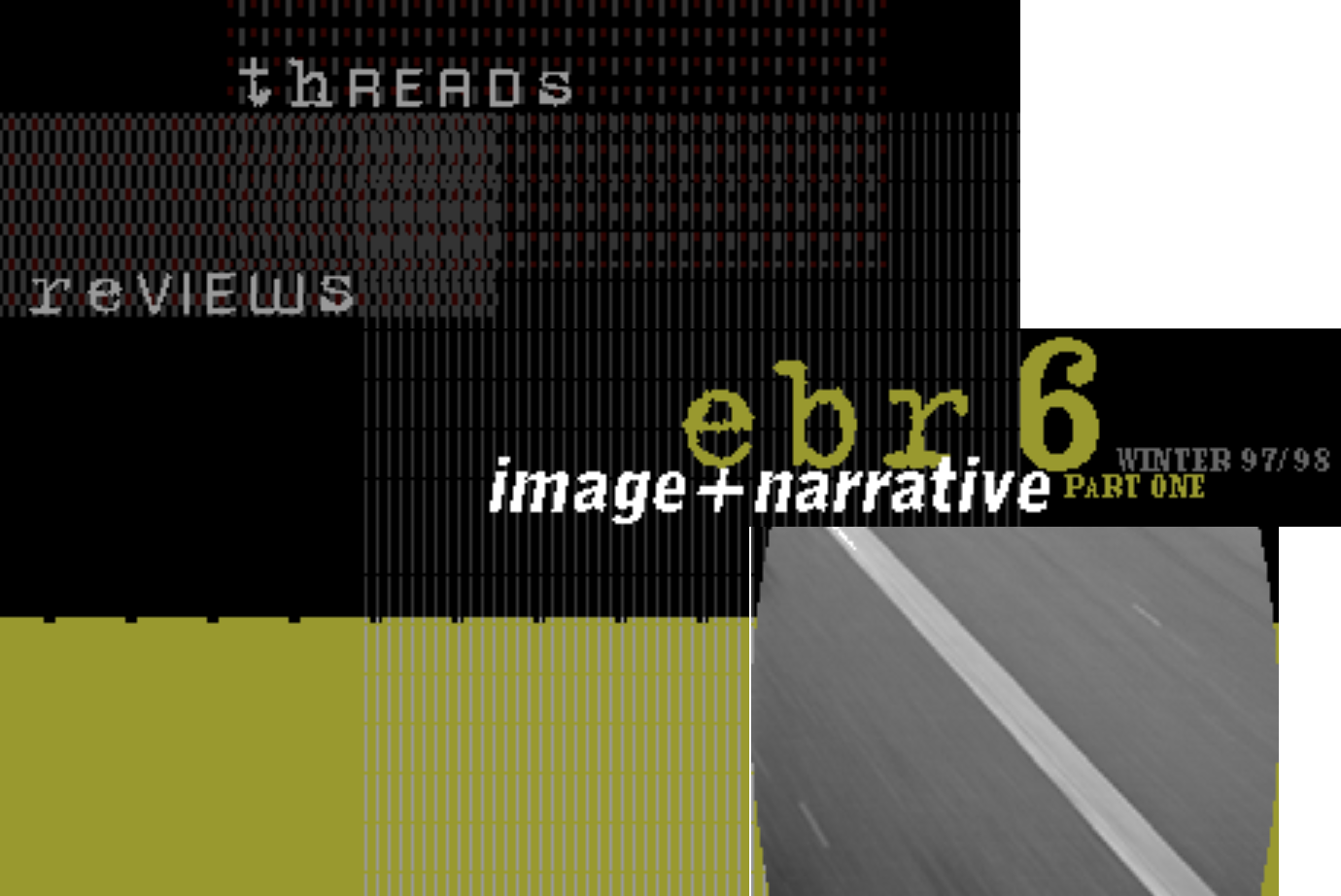
1999–2003
Burdick brings in Ewan Branda as Web Developer to experiment with static HTML threads featuring animated design elements. The site becomes a medium for publishing and thinking collaboratively.
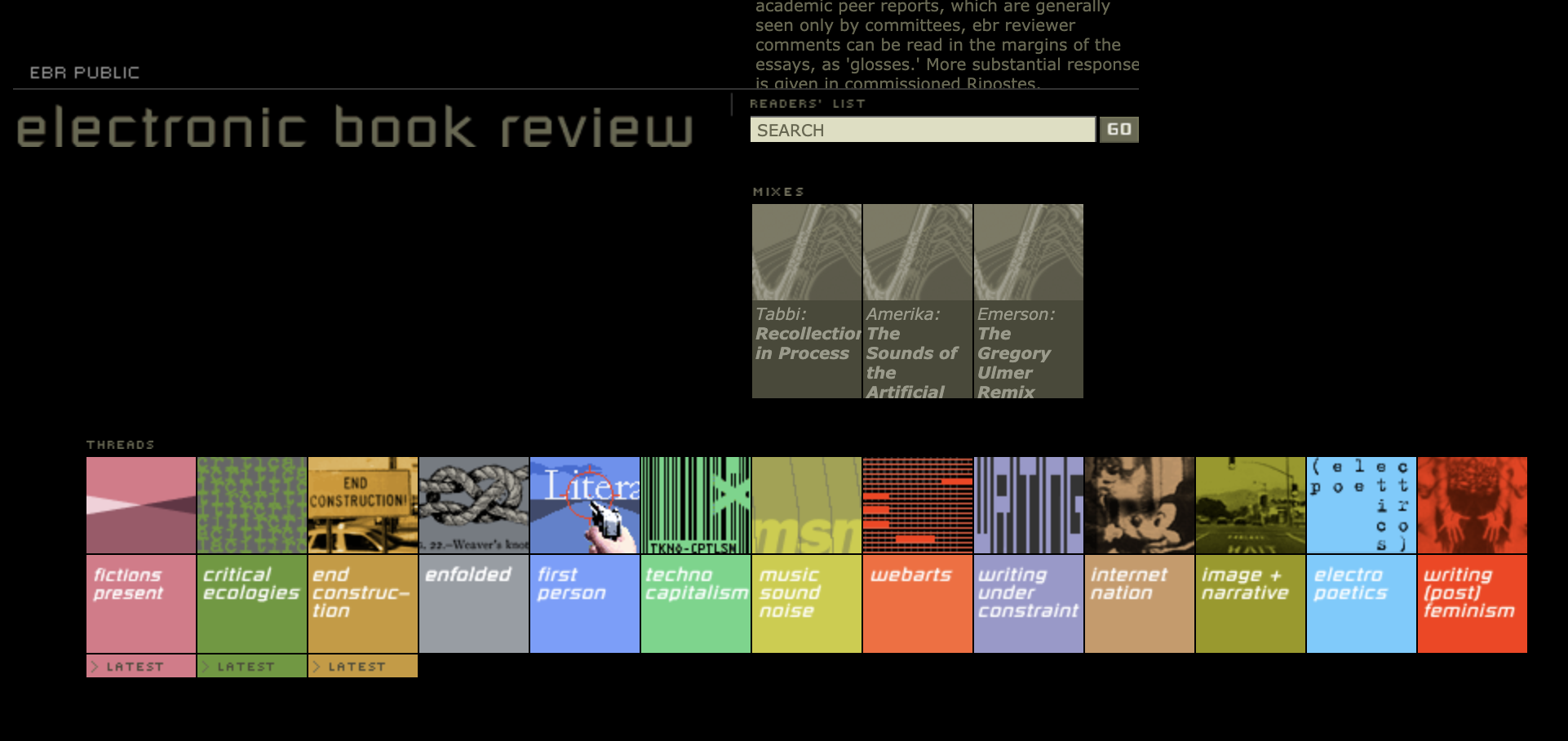
2004–2006
Lori Emerson joins the editorial team, launching the electro-poetics thread and expanding community-based critique.
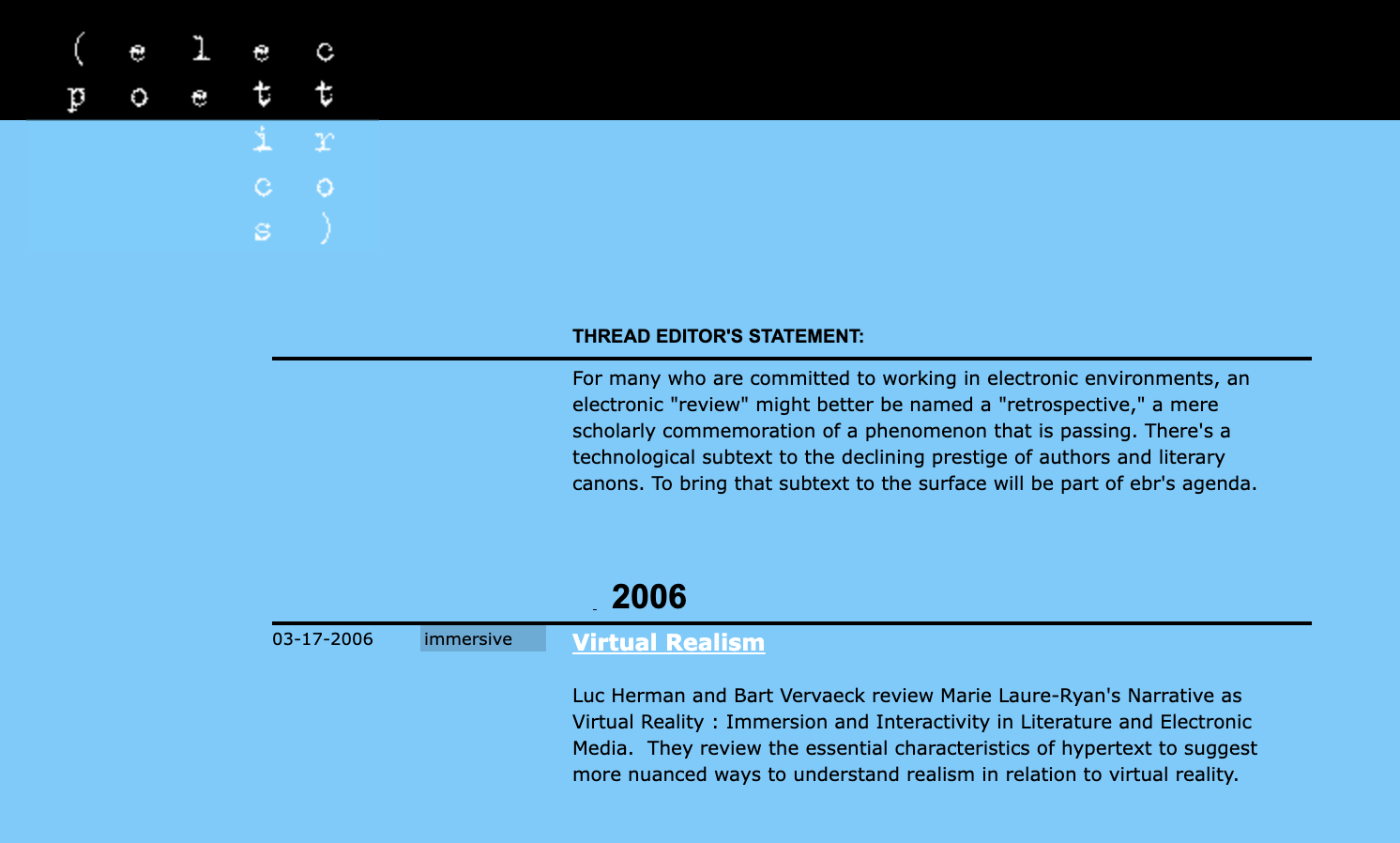
2012–2017
Davin Heckman joins the editorial team, taking over as Electropoetics thread editor and then as Managing Editor. Ewan Branda continues as Developer, moving the site to the Drupal publishing environment. ebr supports peer-reviewed, database-driven publishing.
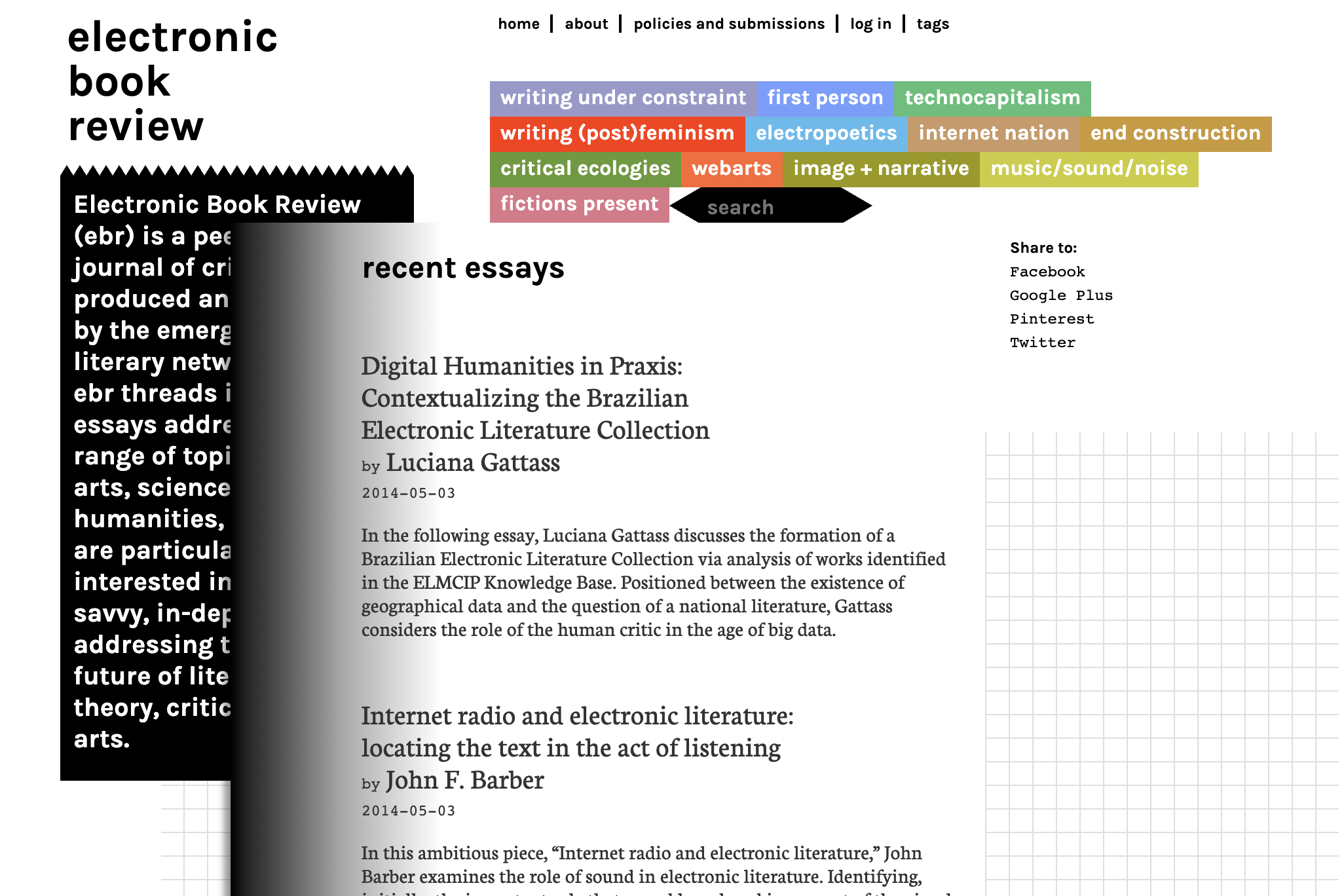
2010s
ebr expands into a global editorial network, participates in CELL (Consortium on Electronic Literature), and continues as a critical space for digital literature and humanities.

2017
Lai-Tze Fan enters as a contributing editor after DHSI, Digital Humanities Summer Institute at the University of Virginia, later becoming the newsletter “Barker” and Director of Communications.
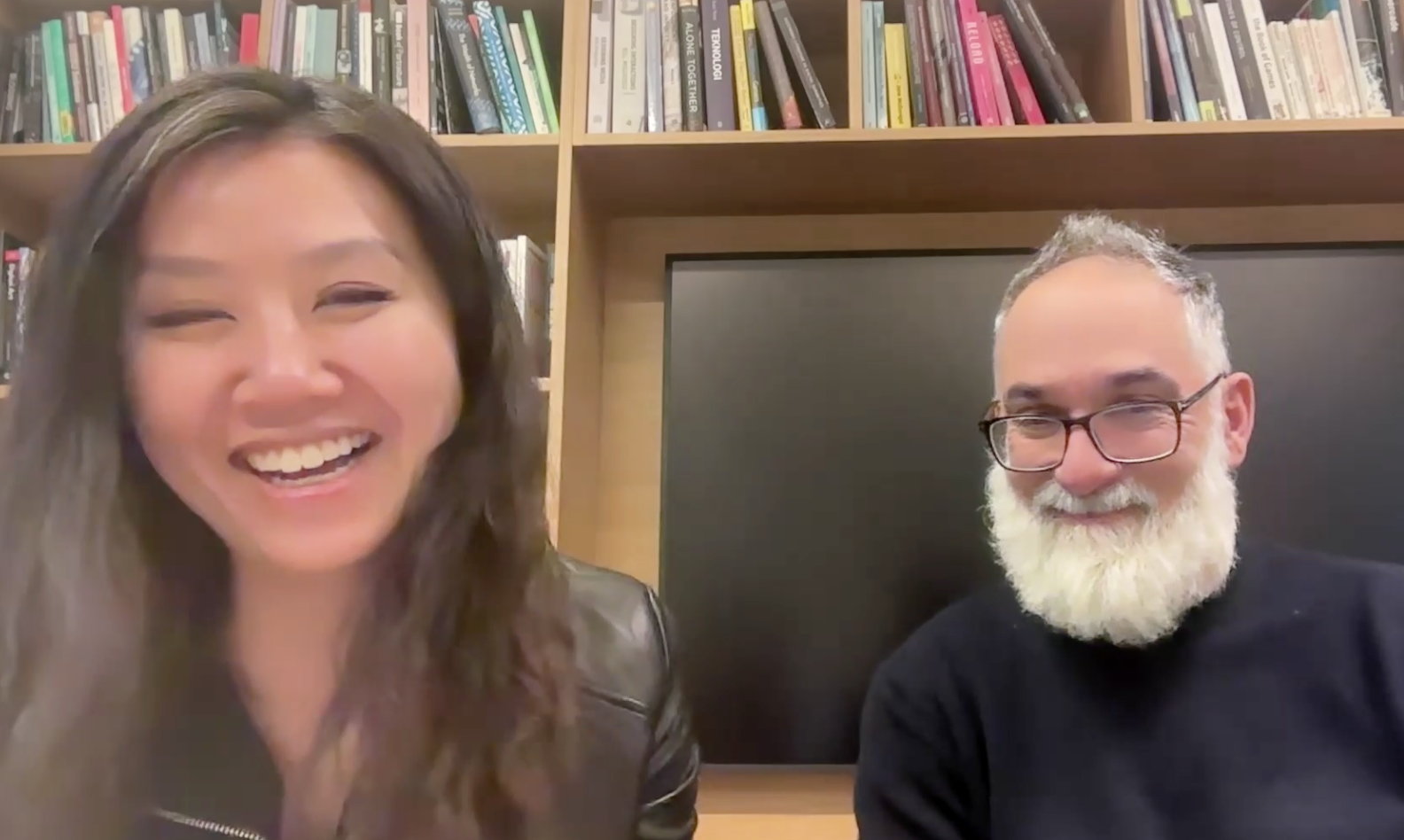
2018
Will Luers becomes Managing Editor and Information Designer (2018–2024), migrating ebr from Drupal to WordPress and with Sharon Oiga, redesigns the site interface.
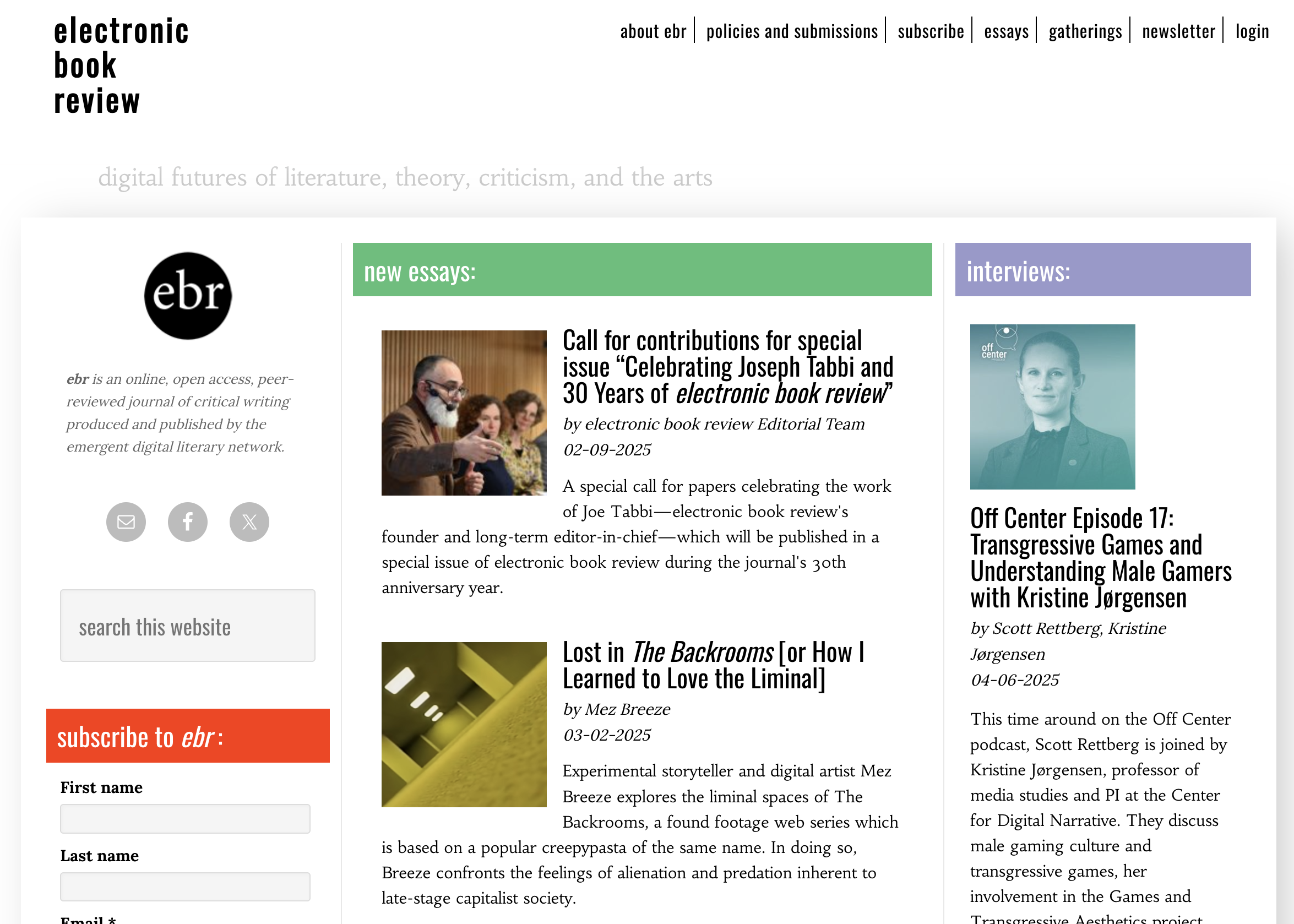
2019
Joseph Tabbi, working with contributors to ebr, publishes Post-Digital: Dialogues and Debates from electronic book review, a print collection archiving two decades of essays. This marks a shift to curating ebr’s archive for new critical audiences.
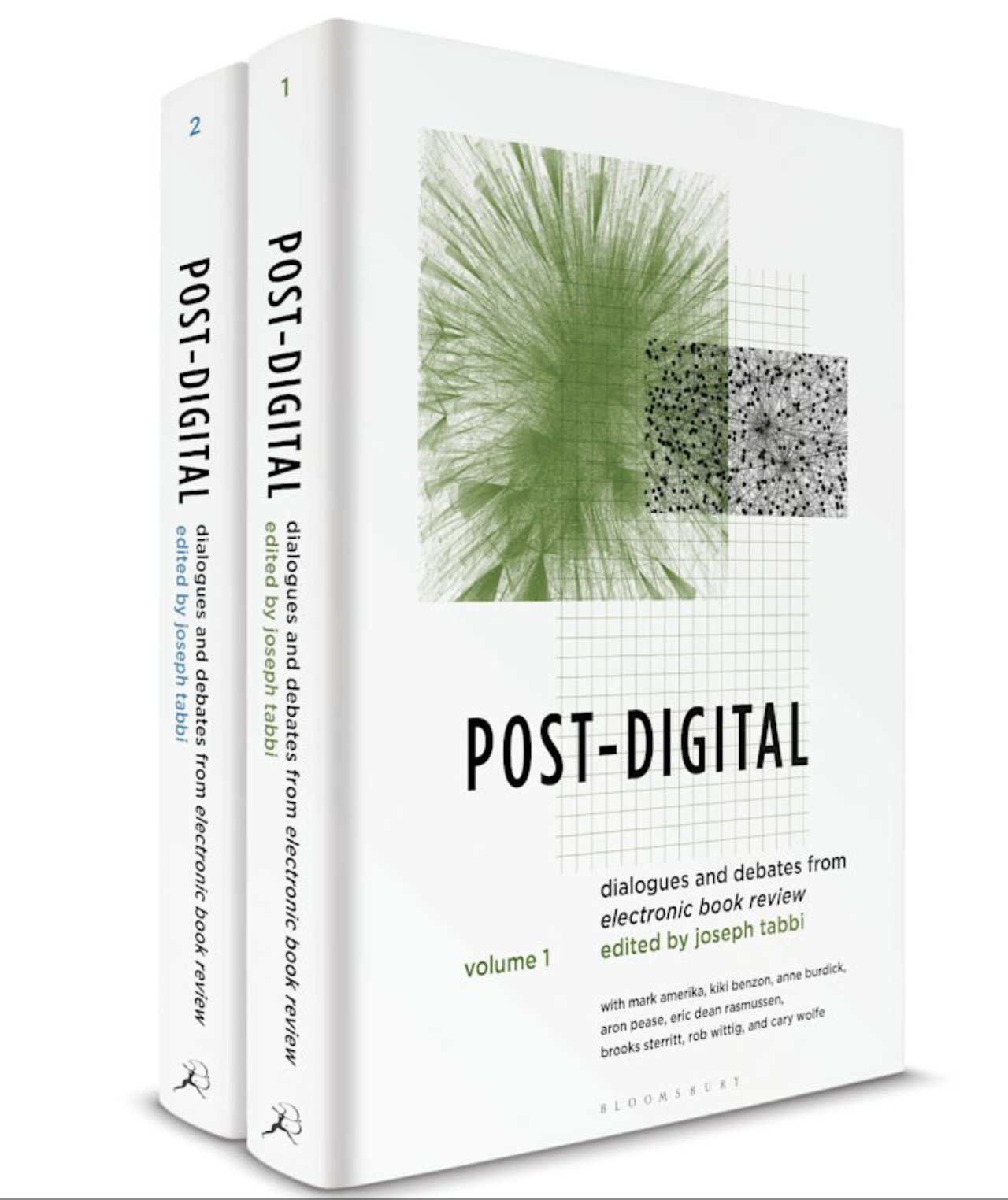
2020
ebr's sibling publication The Digital Review launches: "Issue 00: digital essayism" with Will Luers as editor and the ebr team as co-editors. Each following issue has a different editor and different editorial focus.
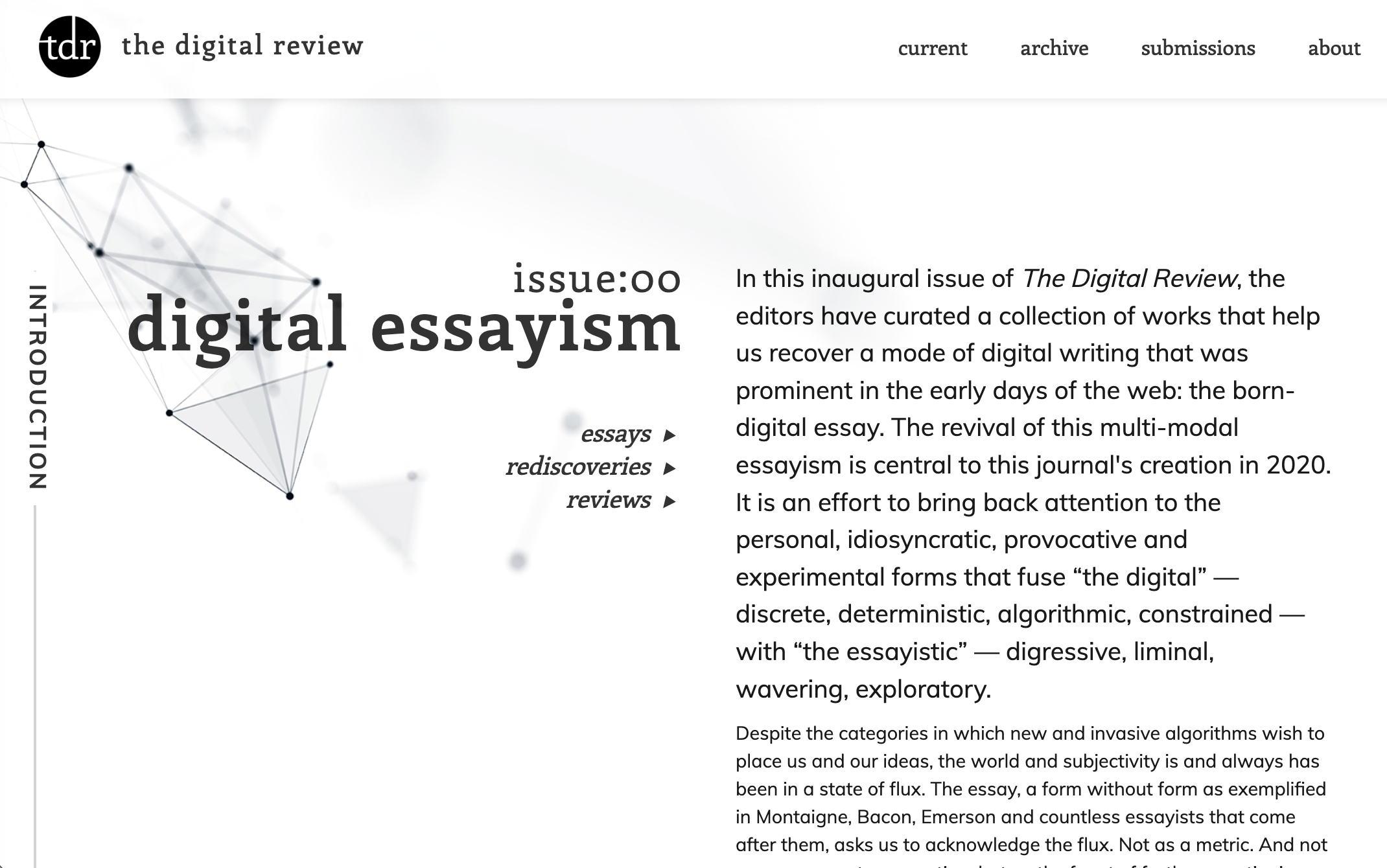
2023
The Center for Digital Narrative (CDN) is founded in Bergen, Norway, directed by Scott Rettberg and Jill Walker Rettberg. Founding ebr editor Joseph Tabbi becomes the center's Node leader for Electronic Literature. The CDN will become host and steward of ebr starting in 2025.

2024
CDN post-graduate students Tegan Pyke and Daniel Johannes Rosnes join ebr as co-editors, bringing a new generation of scholars
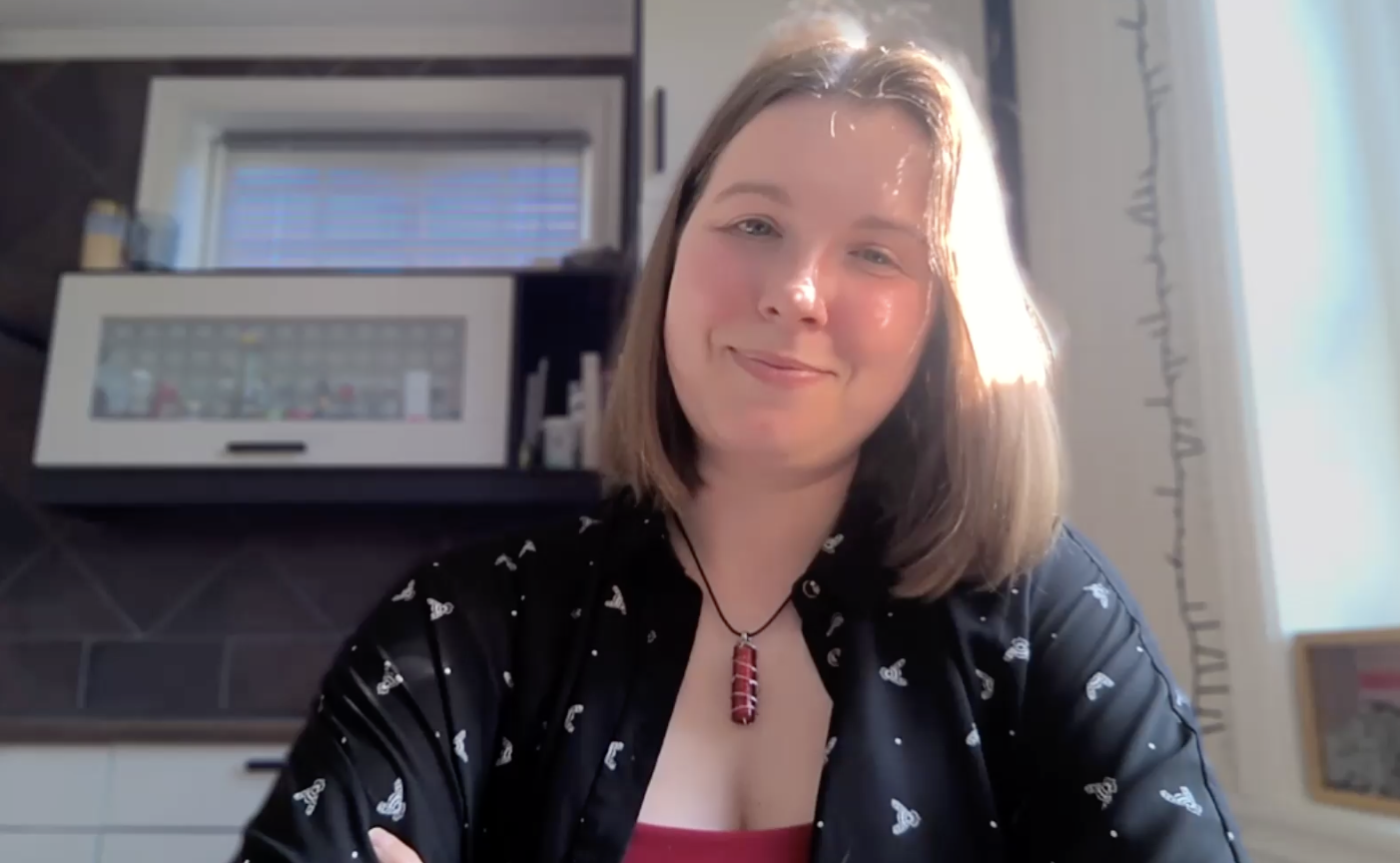
2025
Anna Nacher becomes Managing Editor of ebr, overseeing its hybrid evolution as a platform for publication, theory, and community. Emphasis grows on AI writing, digital expression, and sustaining a non-corporate, open-access ethos.
